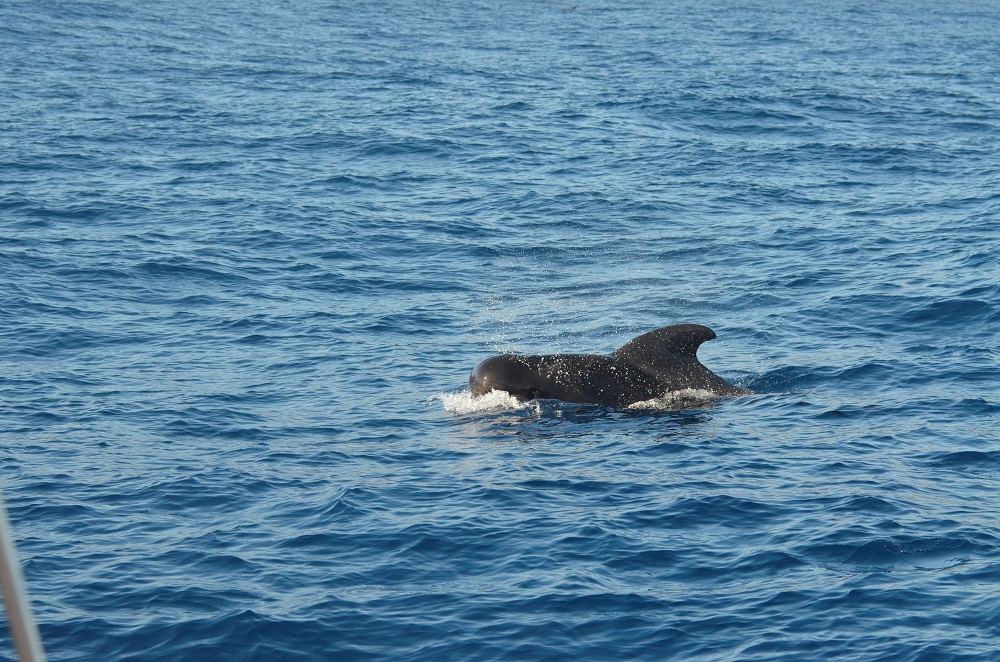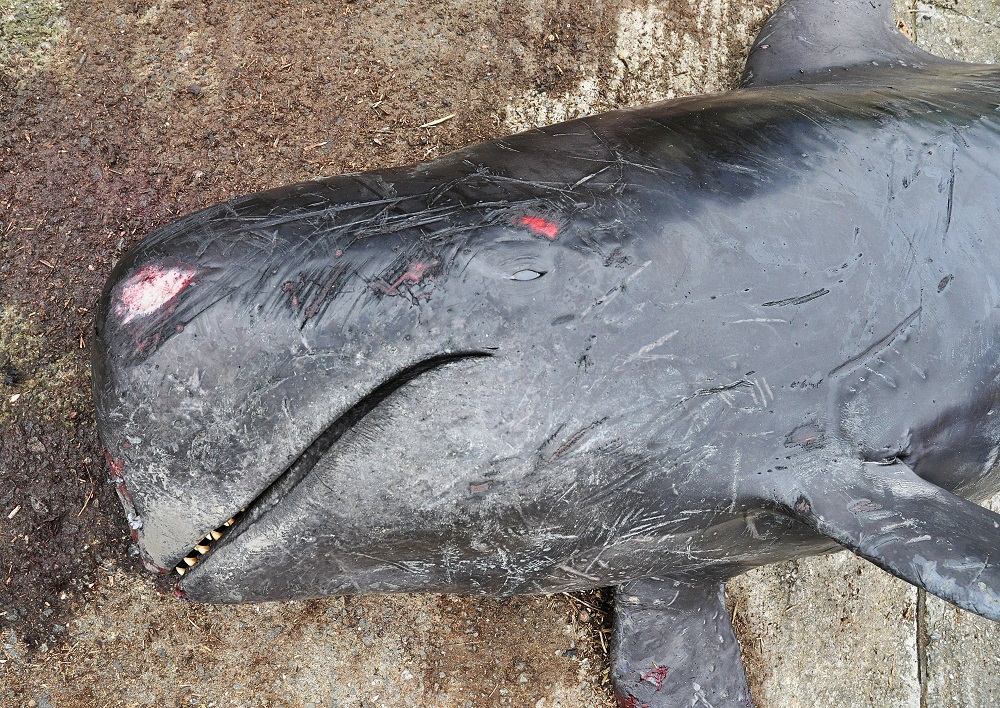Whale stranding on the Pembrokeshire coast shows impact of climate change, say scientists

New research into a whale which stranded on the Pembrokeshire coast more than a decade ago has identified it as the first, short-finned pilot whale ever to be found in British waters.
This type of whale is more frequently found in tropical to warm temperate seas and is not normally encountered in Europe north of the Bay of Biscay.
Researchers said its discovery in UK waters adds to the growing evidence of a clear trend of cetacean life being affected by climate change.
The whale stranded at Hazelbeach near Neyland, Pembrokeshire, on March 1 2012.
It was examined by the Defra and Welsh Government funded Cetacean Strandings Investigation Programme (CSIP) and was initially identified as a long-finned pilot whale, Globicephala melas, which are are commonly found in British waters and strand frequently.
However, fresh analysis of features of its skull and teeth, described by scientists in a newly published article in the journal Mammal Communications, confirmed that it is, in fact, a short-finned pilot whale, the first found in British waters.
Warm water species
Dr Andrew Kitchener, Principal Curator of Vertebrates at National Museums Scotland, where the whale’s skull is now held, said: “This is one of a growing number of examples in our collection going back to the 1980s of what we would normally think of as warm-water species being found for the first time in British waters.
“Others include striped dolphins, pygmy sperm whales and a Fraser’s dolphin.
“It’s important to develop our understanding of changing marine populations and their distributions, and the existence of collections and research facilities such as ours are crucial to building that understanding over time.
“This discovery means that we can no longer assume that every stranded pilot whale in Britain is a long-finned pilot whale.”
Short-finned pilot whales and long-finned pilot whales are similar and difficult to distinguish externally at sea.

Rob Deaville of the Institute of Zoology in London, where CSIP is based, was part of the team involved in the 2012 examination.
He said: “The identification of this short-finned pilot whale in UK waters adds to the growing evidence of a clear trend of cetacean life being affected by climate change, part of a wider impact across our seas and oceans.“
Support our Nation today
For the price of a cup of coffee a month you can help us create an independent, not-for-profit, national news service for the people of Wales, by the people of Wales.







!Awww… that’s a shame, still better get in the car and drive to Maccies, its nearly dinner time …”
Average Reader.
So why did cold loving Wally the walrus travel all them miles in the opposite direction?